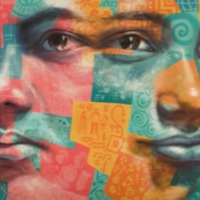
I am from Macam Tit in Aweil East County. I don’t know how old I was when I was taken. I don’t remember being taken. I wouldn’t recognize my parents, but I still remember their names.
The slave raiders came at night, on horses. I watched them shoot some of my brothers and sisters, and I saw the rest flee into the bush. I assume they’re dead. We were four brothers and three sisters: Adup, Akot, Achier, Abuk, Adut, Akuol and me. I haven’t seen any of them since.
A man named Mohammed Abdullah took me to the North. He might have been one of my siblings’ killers; I’m not sure. He and the other slave raiders made us walk to the North. Nothing happened on the journey. But the slave raiders cut one person’s throat, and beat two others to death. The Arab in charge of them said, “I don’t need these people.”
I lived with Mohammed in Karega in the North. I was the only Dinka person in his house, but there were others living with the neighbors. They were slaves too.
Even though I was very young, I experienced serious beatings all the time in Mohammed’s house. I had to wash their cooking utensils and take care of his wife’s young baby girl.
Mohammed had one wife and two older sons. They were all unkind to me. You can see on my left arm I have a scar from a bite, and a burn-scar. These were given to me by the baby girl I had to take care of, after she grew up. On my left leg is a knife scar, from Mohammed’s children. When Mohammed saw these wounds, he said, “she’s a jengai [a racial epithet.] It’s no problem.”
Mohammed’s sons raped me. So did Mohammed.
Mohammed had me circumcised. An old man named Abdullah did it. They told me, “If you join us, you have to be like us.” At first I refused, but I was terribly beaten until I agreed. Before that, they gave me a new name: Hawa.
I was young, so I was not allowed to pray with them. But sometimes they asked me to imitate the way they prayed. Sometimes, Mohammed forced me to pray like a Muslim, holding a stick above my head. Sometimes, they took me to where they teach children about Islam. I didn’t learn very much there, because I had to spend a lot of time working. I remember my relatives used to go to church in the South, but I thought that I was a Muslim in the North.
My baby is named Kuol. He is two months old. Mohammed is his father, and he was born in Mohammed’s house. Mohammed called him “Juma’a.” As soon as I left Mohammed’s house, I gave him a Dinka name, because “Juma’a” belongs to the Arabs, and I experienced so many bad things at my master’s hands. When I left, there were no clothes for Kuol, so I picked up this blanket from a rubbish pile on the way South.
The slave retriever brought me here. He came to Mohammed’s house, and told him that he wanted to take Dinka people. Mohammed agreed. As I was leaving, he whispered to me, “When you reach the South, escape and come back to me.” But I don’t want to go back. I’m happy here, because the people are my color.
We walked here through the bush, not on a road. The slave retriever explained on the way, “We are going to Dinkaland. Sudan is split in two now. You are going home, and the Arabs will stay on their own land.” He is a good man. That’s why he brought us here. If we find our relatives, it will be because of him.
I will now have to decide whether to go to church or to the mosque. I hope to see my siblings again. I have good memories of them. As long as I stay here, I will find them.
Narrative provided by Christian Solidarity International









